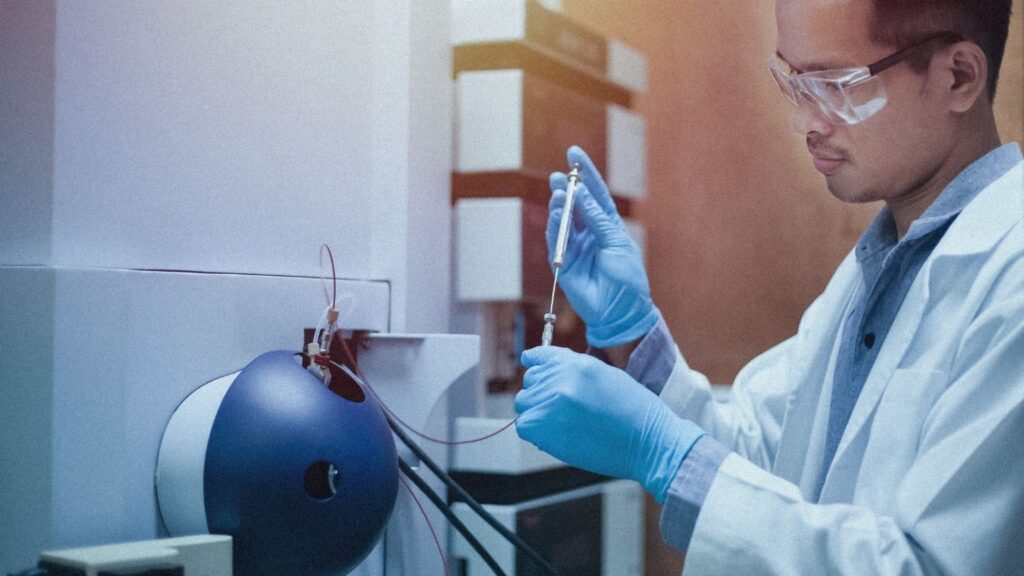Biotechnology is advancing rapidly, driving innovation across healthcare, agriculture, food, and manufacturing. At the forefront of these advancements are gene editing technologies like CRISPR/Cas9, which enable precise modifications to the genetic code of living organisms. This technology holds promise for treating genetic disorders and enhancing agricultural productivity. Meanwhile, synthetic biology is enabling the design of new biological systems and molecules, facilitating developments in pharmaceuticals, biofuels, and enzyme production.
Additionally, AI and machine learning are transforming biotech workflows. These technologies allow researchers to process large volumes of biological data, leading to valuable insights into disease mechanisms and potential drug targets. AI-powered tools are also optimizing clinical trial designs and predicting drug efficacy and safety, paving the way for more efficient research and development.
In this article, we explore 20 biotech startups to watch in 2025, each contributing to these innovations and more.

1. Hera Biotech – Non-Surgical Endometriosis Diagnosis
Hera Biotech, based in the USA, is pioneering a non-invasive solution for diagnosing endometriosis, a condition often misdiagnosed and traditionally confirmed through laparoscopic surgery. Their flagship product, MetriDx, utilizes microfluidic analysis of endometrial tissue obtained via a simple uterine brush biopsy. This approach not only offers precise staging of endometriosis but also reduces healthcare costs by minimizing the need for invasive procedures. Hera Biotech’s technology promises better patient outcomes by enabling personalized treatment plans based on accurate diagnosis.
2. ATANIS Biotech – Functional Allergy Screening
ATANIS Biotech, a German startup, is redefining allergy testing with its Functional Allergy Screening Test by Passive Sensitization (FAST-PASE). The test uses a unique mast cell line and patient-derived blood serum to identify allergen-specific immunoglobulin E (IgE). Unlike traditional in vivo allergy tests, FAST-PASE relies on passive sensitization and quantitative analysis via flow cytometry, improving accuracy and patient safety. It allows for high-throughput measurement, making it ideal for large-scale screenings and drug development.
3. Andson – Mass Spectrometry Workflow Enhancement
USA-based Andson Biotech offers the DynaCHIP and DynaMARK platforms, which are revolutionizing mass spectrometry workflows in biotechnology. DynaCHIP simplifies sample preparation with a microfluidic chip design that interfaces directly with any mass spectrometer, enhancing speed and consistency. DynaMARK, a complementary SaaS module, provides deep insights into therapy processes and biomarker discovery, facilitating bioanalytical analysis and enabling advanced therapy developers to characterize next-generation treatments.
4. metaBIX – Pathogen Risk Detection
metaBIX, a startup from Uruguay, focuses on early detection of microbiological risks with their AI-powered platform. By analyzing field-measured data from environmental samples, metaBIX identifies emerging pathogens using validated sampling methodologies. The startup’s technology is especially crucial in sectors like food, poultry, and livestock, where early pathogen detection can prevent large-scale outbreaks of diseases such as listeria, salmonella, and African swine fever.
5. MxT Biotech – Microfluidic Gene Editing
South Korean startup MxT Biotech has developed Hydroporator, a microfluidic cellular engineering platform designed for introducing various cargos like plasmid DNA, mRNA, proteins, and CRISPR-Cas9 RNPs into primary cells. The technology’s high efficiency and scalability make it valuable for gene editing applications in cell therapy and biotherapeutics, helping researchers and clinicians streamline the development of novel treatments.
6. Entomal – Mobile Bio-Conversion System
Entomal, based in Malaysia, offers the Entomal Mobile Bio-Conversion (EMBC) System, an innovative approach to decentralized organic waste management. Utilizing black soldier fly larvae within a shipping container, the EMBC system efficiently converts organic waste into insect protein and fertilizer. The system integrates IoT sensors for automated processing and monitoring, promoting sustainability by reducing carbon emissions and waste accumulation.
7. Home Algae – Algae-derived Ingredients
Home Algae, a Taiwanese startup, produces high-value algae-derived products like R-Phycoerythrin (R-PE) for biotechnological applications and Rosy Illumi Algae (RIA), a cosmetic ingredient. RIA is derived from self-cultivated red algae and offers antioxidant, UVA ray absorption, and cell proliferation properties. Home Algae serves various industries, including cosmetics, pharmaceuticals, and food supplements.
8. Quantis – Human Bioidentical Proteins
Quantis, a Brazilian startup, is advancing regenerative medicine with its QProtein range, which includes dermal fillers, joint injection solutions, and wound dressings. QProtein for Dermal Filler stimulates collagen production and enhances tissue restoration, while QProtein for Joint Injection regenerates damaged cartilage. The startup also offers QMod, a modified 3D bioplatform for human hormone development, paving the way for next-generation biologics.
9. Aclid – Gene Synthesis Security Platform
Aclid, based in the USA, specializes in gene synthesis security and compliance automation. Their platform screens genetic sequences in real time, verifying customer credentials and assessing risks to prevent unauthorized use. Aclid’s platform reduces compliance issues and ensures safe and ethical gene synthesis processes, making it an essential tool for synthetic biology labs and manufacturers.
10. LatchBio – Cloud-based Bioinformatics Platform
LatchBio, based in the USA, offers a cloud-based platform to streamline R&D workflows in biotechnology. The platform includes scalable storage, data management, and computational tools for next-generation sequencing (NGS). Latch Pods, a super-computing feature, allows researchers to access large-scale bioinformatics resources on demand, promoting collaboration and accelerating research efforts.
11. Sumatrix Biotech – Biofabricated Materials
Turkish startup Sumatrix Biotech uses microbial fermentation to create Jellylose, a sustainable nanofiber biomaterial. This material can be transformed into foams, coatings, and films with multiple uses across the medical, cosmetic, paper, and textile industries. Sumatrix’s biofabrication process utilizes waste sources, converting them into high-value materials and supporting circular economy practices.
12. PharmAla Biotech – Clinical MDMA
Canada-based PharmAla Biotech specializes in producing clinical-grade MDMA for research and therapeutic use. Their proprietary manufacturing process ensures the production of high-purity MDMA, reducing regulatory barriers and advancing research into the treatment of mental health disorders, including PTSD and depression.
13. Glyphic – Next-Generation Protein Sequencing
USA-based startup Glyphic Biotechnologies is innovating in protein sequencing with its proprietary technology. By using specific chemical reactions and fluorescent markers, Glyphic’s platform accurately sequences amino acids in proteins, providing insights into disease mechanisms and novel therapeutics development.
14. RAGE Biotech – Chronic Inflammatory Diseases Treatment
RAGE Biotech, based in Australia, develops RNA and peptide-based therapeutics to treat difficult-to-manage inflammatory diseases. Their proprietary technology targets the receptor for advanced glycation end-products (RAGE), reducing inflammation by promoting the expression of anti-inflammatory splice variants in affected tissues.
15. HHV Biotech – Biofilm-related Therapeutics
Dutch startup HHV Biotech focuses on treating biofilm-related infections by disrupting quorum sensing (QS), a communication mechanism between bacteria. By interfering with QS, HHV Biotech’s antimicrobial therapies prevent the formation of biofilms, which are often resistant to conventional antibiotics.
16. Optieum Biotechnologies – Antibody-based Cancer Therapies
Japanese startup Optieum Biotechnologies is advancing cancer treatment with its Eumbody System, which enables the development of single-chain variable fragment (scFv) antibodies. These antibodies are designed for use in CAR-T cell therapies, enhancing tumor targeting and reducing adverse effects.
17. Gate2Brain – Therapeutic-Peptide Shuttles
Gate2Brain, based in Spain, offers a peptide-based platform that enables therapeutics to cross biological barriers, like the blood-brain barrier. Their G2B Therapeutic-Peptide Shuttle technology improves drug delivery to the brain, enhancing treatment efficacy while reducing side effects in neurological disorders.
18. Lumatix Biotech – Antibody Manufacturing
German startup Lumatix Biotech uses a light-controlled affinity matrix to isolate antibodies with high specificity and efficiency. Their technology enhances antibody manufacturing by increasing process productivity and reducing costs, making it valuable for biopharmaceutical companies.
19. HydRegen – Sustainable Chemical Synthesis
UK-based HydRegen creates biocatalysts and processes for sustainable chemical synthesis. By replacing toxic metal catalysts with bio-based alternatives, HydRegen improves manufacturing processes in the pharmaceutical and fine chemicals industries, promoting eco-friendly production.
20. NewFish – Microalgae-based Superfoods
NewFish, based in New Zealand, leverages microalgae technology to develop nutrient-rich superfoods. Their products provide a sustainable source of protein with a complete amino acid profile, catering to the growing demand for plant-based and environmentally friendly protein sources.

Global Startup Trends
The Global Startup Heat Map highlights regions with the highest concentration of biotech innovation, showcasing the USA and Western Europe as dominant players. The USA, driven by its robust funding ecosystem and a vast network of research institutions, leads in key areas such as gene therapy, personalized medicine, and biomanufacturing. Western Europe, with its emphasis on sustainability and healthcare advancements, is fostering innovative solutions in fields like biofabrication, regenerative medicine, and advanced therapeutics. In recent years, India has emerged as a significant player in biotech, focusing on affordable healthcare technologies, agricultural biotech, and biosimilar production. This growth is driven by a supportive policy environment, increasing investments, and a large pool of skilled talent.
Startups across these regions are addressing some of the most pressing global challenges. In healthcare, they are leveraging advancements in gene editing, AI, and diagnostics to improve patient outcomes and create targeted therapies. In sustainability, biotech companies are developing innovative biofabrication processes and alternative protein sources, such as microalgae-based superfoods, to reduce environmental impact. Additionally, breakthroughs in protein sequencing and synthetic biology are enabling new pathways for drug discovery and industrial biotech applications. As these startups continue to grow and gain traction, they are reshaping industries and setting new standards in healthcare, sustainability, and beyond.
The Rise of Biotech Startup Hubs
With the rapid spread of biotech innovation globally, several cities have become key hubs, fostering the development of cutting-edge solutions and emerging technologies. Among these, London, New York City, Cambridge, San Francisco, and Boston stand out as epicenters of biotech growth. Each of these cities offers a unique ecosystem that supports biotech startups through access to funding, academic partnerships, and a concentration of specialized talent.
- London has solidified its position as a biotech hub with a strong focus on digital health, genomics, and advanced therapy medicinal products (ATMPs). The city’s proximity to world-class research institutions and a growing network of venture capital firms have made it an ideal environment for biotech startups.
- New York City has seen a surge in biotech activity in recent years, driven by substantial investments in life sciences and the development of dedicated biotech campuses. Startups in New York are making strides in oncology, neurology, and AI-driven diagnostics, supported by collaborations with renowned hospitals and research centers.
- Cambridge in the UK, often referred to as the “Silicon Fen”, is known for its deep expertise in genomics, gene editing, and stem cell research. The city’s ecosystem benefits from close ties to the University of Cambridge, fostering a culture of innovation and collaboration between academia and industry.
- San Francisco and the greater Bay Area are synonymous with biotech innovation, home to leading companies in gene therapy, synthetic biology, and personalized medicine. The region’s entrepreneurial spirit, coupled with access to some of the world’s largest biotech investors, continues to drive breakthrough developments.
- Boston remains a global leader in biotech, renowned for its concentration of biotech companies, research institutions, and venture capital firms. The city’s expertise spans across all facets of biotech, from regenerative medicine and immuno-oncology to bioinformatics and AI-driven healthcare solutions.
These biotech hubs play a crucial role in driving global innovation, providing the necessary resources and infrastructure to turn groundbreaking research into market-ready solutions. By fostering collaboration between academia, industry, and investors, these cities are shaping the future of biotech and ensuring that new technologies reach patients and consumers worldwide.
Conclusion
The landscape of biotech is evolving rapidly, with startups leading the charge in redefining how we approach healthcare, sustainability, and industrial applications. The 20 startups highlighted in this report are not only developing innovative solutions in areas like gene editing, protein sequencing, and regenerative medicine but are also addressing global challenges with forward-thinking approaches. From non-surgical diagnostics and functional allergy screening to sustainable bio-conversion systems and advanced antibody therapies, these companies are pushing the boundaries of what’s possible in biotech.
As the Global Startup Heat Map shows, regions like the USA, Western Europe, and India are fostering a vibrant ecosystem of biotech innovation. The emergence of major hubs in cities like London, New York, Cambridge, San Francisco, and Boston underscores the importance of local ecosystems in driving global advancements. These hubs are creating a fertile ground for startups to thrive, supported by academic partnerships, access to funding, and a strong pool of talent.
Looking ahead, the continued convergence of biotechnology, artificial intelligence, and data analytics promises to accelerate the pace of innovation. As these startups advance their technologies and expand their impact, they will play a pivotal role in shaping the future of medicine, sustainability, and beyond. With growing investments and a focus on solving global challenges, the biotech industry is set to unlock new frontiers, creating a more resilient and innovative future.



